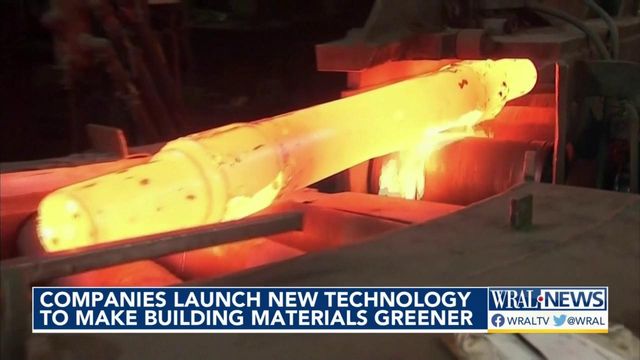Steel and cement manufacturing produce eight times more emissions than aviation
Cement manufacturing and steel production account for roughly 16% of global greenhouse gas emissions, while aviation accounts for about 2% of worldwide C02 emissions, according to estimates by several different researchers.
Two Israel-based companies are hoping to tackle the building industry's climate change challenges by making manufacturing greener.
Helios, a venture that started with aims to extract oxygen from space soil on the moon and mars, inadvertently discovered a valuable terrestrial application: a way to process iron to iron ore without carbon.
Jonathan Geifman, the co-founder and CEO of Helios, says the company's method could decarbonize the steel industry, currently responsible for an estimated 8% of humanity's carbon footprint.
“This is a completely novel process, something that was never looked into before,” Geifman said.
The company converts iron ore to green iron using sodium instead of carbon.
"We can do it with thermal energy at much lower temperatures and use the existing infrastructure at steelmaker sites," Geifman said.
Geifman says Helios' process uses roughly 50% less energy and is at least 20% cheaper than traditional processes. Helios is launching a pilot plant program on the East Coast later this year.
Criaterra is another Isreali company aiming to upend the building industry with an eco-replacement for cement.
The production of cement, the world's leading construction material, is a major source of global greenhouse gas emissions, accounting for about 8% of all such releases.
“We are developing fully circular, fully sustainable products that are produced without going beyond the boiling point of water," said Adital Ela, founder & CEO of Criaterra during a tour of the R&D production facility in Holon, Israel.
The company developed a mixture using natural raw materials that are both recyclable and biodegradable.
The composite is created in what looks like a giant KitchenAid mixer. Though the final product has the strength of cement, the early-stage Criaterra material is gentle enough to knead with your hands. It feels like a mix of papier-mâché and Play Doh, with a mild and earthy smell.
That "cookie dough," as one employee calls it, is then pushed through a machine into measured tubes. Another machine applies pressure and heats the slabs using minimal energy, never surpassing 100 degrees Celsius.
The production of both ceramics and cement utilize kilns fired at temperatures above 1,000 degrees.
“Our process saves 90% of the energy and 80% of the CO2 emissions," Ela said. "It’s a game changer.”
Criaterra is currently expanding to a larger production facility in Portugal and planning to produce a thinner and more insulated cement block replacement, in addition to it's current offering of wall tiles. The company will be launching in Europe, Asia and U.S. in the coming months.











